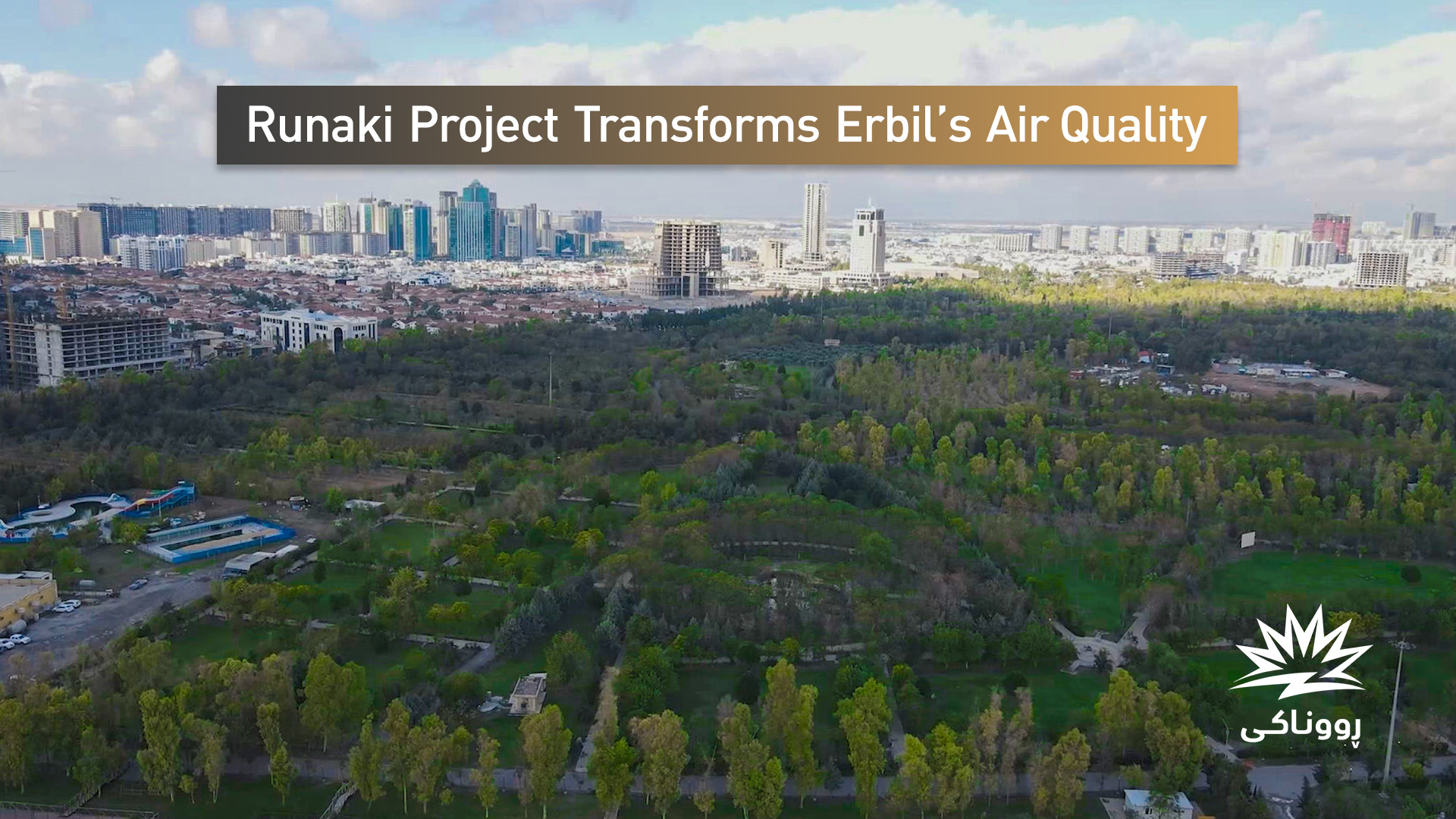Erbil Breathes Easier as KRG's Runaki Project Drastically Clears Skies
KRG's 'Runaki' project has shut down thousands of diesel generators, drastically improving Erbil's air quality. Officials report key pollutants have fallen by over 50%, a change residents and scientific data confirm, with visibility in the capital increasing significantly.

ERBIL (Kurdistan24) — A major government-led energy initiative has resulted in a dramatic and measurable improvement in the air quality of Erbil, a tangible change that has cleared the city's once-hazy skies and is now being confirmed by both scientific data and the daily experiences of residents and commuters.
This significant environmental turnaround, driven by the shutdown of thousands of private diesel generators, marks a key success for the Kurdistan Regional Government's broader strategic efforts to combat climate change and enhance public health.
For daily commuters like Mohammed Burhan, who travels from the nearby town of Shaqlawa to the capital every morning, the transformation is unmistakable. Previously, he perceived Erbil’s environment as polluted even from a distance, but that perception has now fundamentally shifted.
"Erbil's environment has become noticeably cleaner; the smoke and dust of the past are gone," Mr. Burhan stated. While acknowledging that the city’s high volume of traffic still presents a challenge, he stressed that the overall improvement is profound.
"The situation is much better now. As someone who comes from outside the city every morning, I can see Erbil's sky clearly and feel a huge difference; it is now much clearer and cleaner compared to before," he said.
This anecdotal evidence is now strongly supported by official data and expert analysis from the Kurdistan Region's Environment Board.
Haval Ahmed, the head of the Climate Change Department at the board, confirmed that "according to global standards, Erbil's air has undergone a significant change." He explained that through the use of advanced "remote sensing" technology and the analysis of satellite imagery, a clear and positive difference has been observed over the past six months. Most critically, the levels of dangerous fine particulate matter, specifically PM2.5 and PM10 pollutants which are known to have severe negative impacts on human health, have seen a remarkable decline. Mr. Ahmed reported that these hazardous pollutants "have decreased significantly, falling to less than half their previous levels."
At the heart of this environmental success story is the Kurdistan Regional Government’s "Runaki" (Light) project.
The primary driver for the improved air quality, as identified by Mr. Ahmed, has been "the shutdown of 1,200 generators and the reduced use of oil and diesel" within Erbil as a direct result of this initiative.
The Runaki project has successfully interconnected several vital public sectors, including health, environment, and climate, creating a synergy whose positive effects are becoming more evident over time. He noted that "these steps have not only improved air quality but have also reduced the effects of climate change and high temperatures, protecting public health."
The scale and impact of the Runaki project extend across the Kurdistan Region. The initiative now provides reliable power to more than 2.75 million citizens, a development that has enabled the shutdown of more than 2,500 neighborhood diesel generators in total.
This massive reduction in the reliance on fossil fuels for local power generation has had a significant and direct impact on cleaning up Kurdistan's environment through a corresponding reduction in carbon dioxide emissions.
The tangible results are perhaps most clearly illustrated by a dramatic improvement in atmospheric visibility. The shutdown of 1,200 generators within the center of Erbil province and another 600 in its surrounding areas has increased visibility from a previous average of six kilometers to a new, much clearer range of eight to ten kilometers.
This specific project is a cornerstone of a wider governmental strategy aimed at tackling environmental challenges head-on.
The Kurdistan Region's Environment Board has formulated a comprehensive 10-year strategic plan designed to confront climate change and mitigate its negative impacts.
In parallel with this long-term vision, the KRG has implemented several other important projects focused on increasing green spaces and fostering a greater reliance on clean energy sources, all of which have contributed to the positive environmental momentum now being witnessed in the capital and beyond.
Kurdistan24's correspondent Renas Ali contributed to this report.